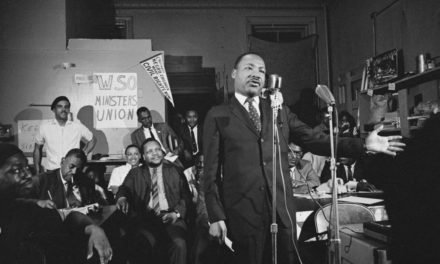
Last week, I began this series of posts about what you should do in real-life challenging situations with a scenario that involved religious objection to LGBT diversity training. Thank you to those who chimed in on what their inclusion solution would be. To find out what the company did and how the scenario ultimately played out, click here.
This week, I have a new case for you to consider.
[dropshadowbox align=”none” effect=”lifted-both” width=”600px” height=”” background_color=”#ffffff” border_width=”1″ border_color=”#dddddd” ]What happens when co-workers can’t understand each other at times? At one company, a lot of paranoia. This organization employed people from a number of ethnic backgrounds—including Russian, Latino, Vietnamese, and African-American workers.
Because employees often talked to each other in their native tongues, others complained that they felt excluded and worried that co-workers were speaking about them in languages they did not understand. This appeared to create friction, miscommunication, and poor productivity. What should the company to address the situation? Next week, I’ll let you know what steps the organization took, but in the meantime, please feel free to comment below. [/dropshadowbox]
Chime in below and share your opinions. As a manager, what should you do?
[dropshadowbox align=”none” effect=”lifted-both” width=”600px” height=”” background_color=”#ffffff” border_width=”1″ border_color=”#dddddd” ]
Ever since the Hartford, Conn-based Beauty Enterprises, Inc. (BEI), a distributor of minority-targeted cosmetics, was founded in 1967, workers had been speaking to each other in their native languages. But after more than three decades, BEI president Robert Cohen claimed that the practice was no longer good for business. As a result, he insisted that all employees speak English. (Actually, an English-only policy had been in place for nearly two decades; however it only applied to people while they were working, not while on breaks.)
After BEI cracked down on multilingualism, the Equal Employment Opportunity Commission (EEOC) filed a lawsuit against the company on behalf of five Hispanic employees based on a claim of national origin discrimination.
The EEOC regularly receives such complaints. Its guidelines point out that:
“A rule requiring employees to speak only English at all times in the workplace is a burdensome term and condition of employment. The primary language of an individual is often an essential national origin characteristic. Prohibiting employees at all times, in the workplace, from speaking their primary language or the language they speak most comfortably, disadvantages an individual’s employment opportunities on the basis of national origin. It may also create an atmosphere of inferiority, isolation and intimidation based on national origin which could result in a discriminatory working environment…An employer may have a rule requiring that employees speak only in English at certain times where the employer can show that the rule is justified by business necessity.”
The defense from BEI was that some workers may form “language cliques” and therefore their policy should be allowable under the business necessity” argument, did not win out.
After seven years of legal wrangling, BEI finally agreed to pay $220,000 to some of the plaintiffs (others had chosen to reject the settlement, keeping open their own option to sue), change its English-only policy, develop new, non-discriminatory language rules, and provide managers with appropriate diversity training. [/dropshadowbox]


















